This karate kid makes downtime her discipline
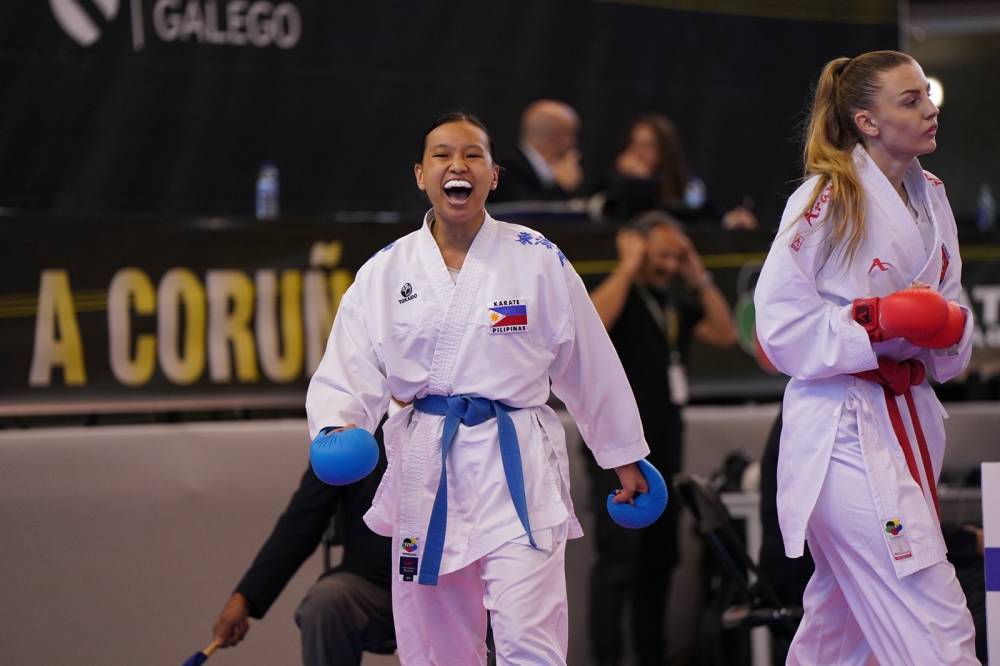
Joan Denise Lumbao proves you can master data and dominate a dojo before turning 21.
At 20, Joan juggles two degrees at the Asian Institute of Management (AIM), one in data science and business administration, and the other in management information systems.
She’s also ranked 80th in the world in the under-21 category, and collects gold medals in karate like they’re extra credit.
The Philippine Sports Commission recognized Joan with a special citation at their 2025 All-Women Sports Awards. But behind the medals and modules is a young woman who’s constantly fine-tuning her craft.
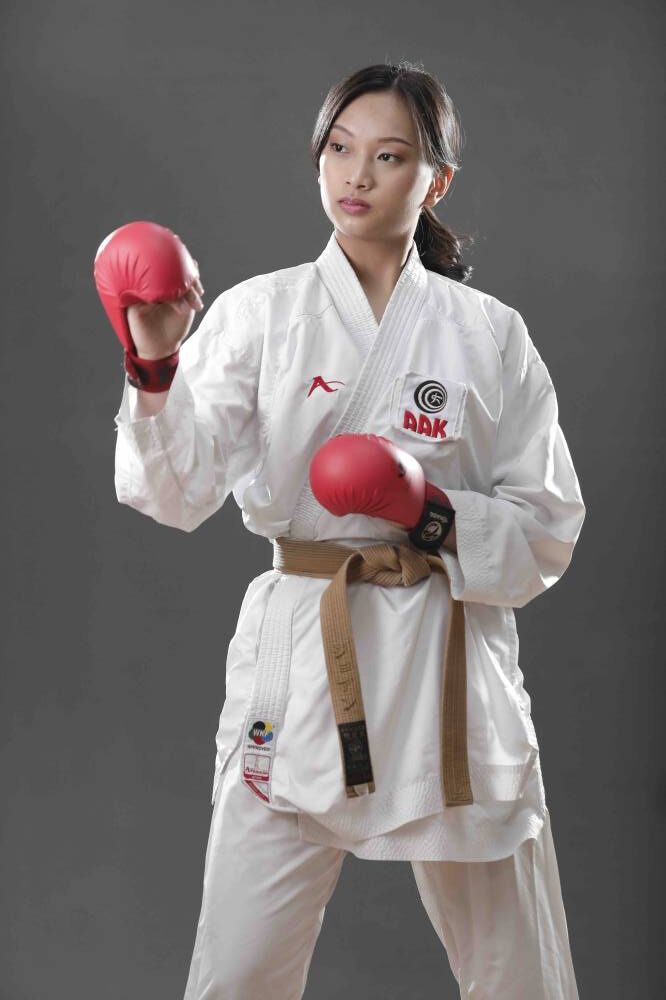
At 4 years old, Joan’s first martial arts inspiration came not from a sensei, but from animation.
“I was 4 when I watched ‘Kung Fu Panda’ with my parents, and I loved it so much, it made me want to learn martial arts. Still my favorite film,” she said.
She finally got her wish at 7 and never looked back. “I stuck to it because I enjoyed it so much. It was fun. Simple as that.”
Unlike the usual parent-push scenario, Joan drove the decision herself. “I asked them to enroll me. I think it’s more common for parents to pick sports for their kids, but that wasn’t the case for me. I’m super thankful they supported me. None of this would’ve been possible without them.”
For her, karate wasn’t just kicks and forms, but a lifestyle philosophy. The mantra of her club, the Association for the Advancement of Karatedo (AAK), “Excellence is a habit,” shaped her work ethic. “That mindset trained me to give 100 percent in everything, even at 7.”
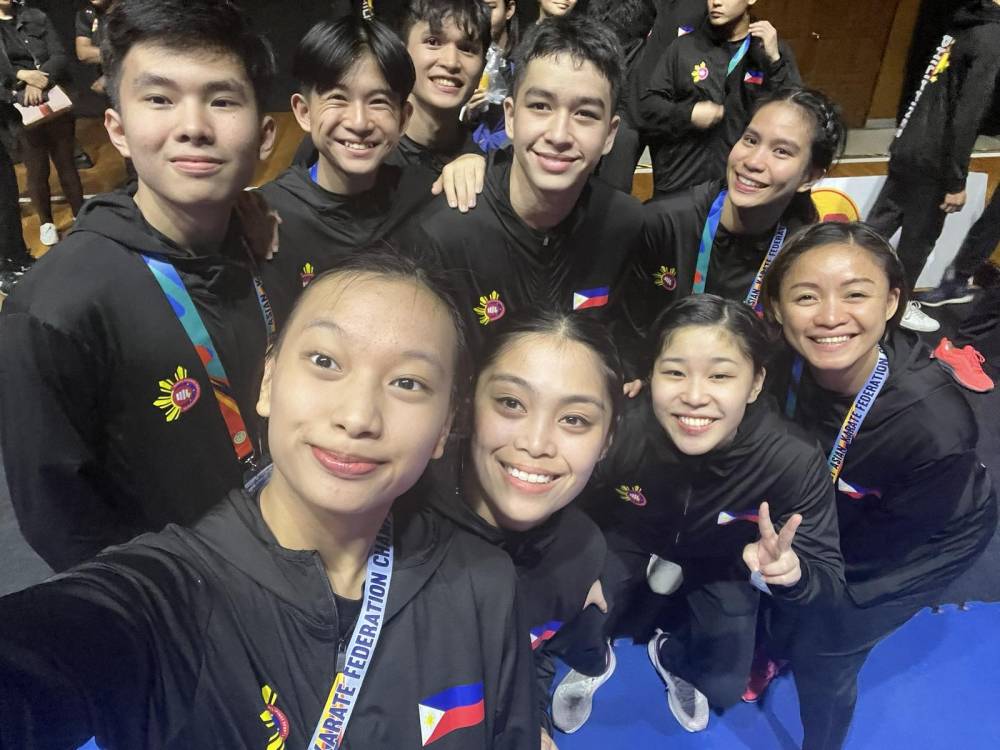
She applies the same precision to schoolwork that she brings to a sparring match.
“In karate, how you pull your fist or how wide your stance is matters. That attention to detail bleeds into how I study. I don’t just memorize; I experiment. I’m a complete beginner in programming, so I write review files and try different ways to understand code that makes sense for me,” she said.
Lifestyle decisions
Her background in data science also shaped how she makes lifestyle decisions—literally. In her reply, she wrote the Python code for this (translating for newsprint): “If I have sugar at night, my internal code runs: Wake up to pee at 3 a.m. No sugar? Good sleep, good recovery. Simple logic. It’s funny, but coding helps me visualize choices.”
Joan calls BS on the romanticized version of student-athlete life. “Time management is a mindset marathon. If you don’t want to do something, you’re not going to find time for it.”
Her approach is grounded and refreshingly real. “Sometimes the best thing you can do is rest. If I have a test the next morning, I won’t stay up until 1 a.m. If I don’t get it at 11 p.m., I won’t get it two hours later either. So I sleep. Sleep is part of the plan.”
She’s clear about priorities, but she’s not rigid. “I try to be fully present in whatever I’m doing. If I’m in school, I need to absorb what I can; otherwise, I’ll just have to learn it again later. But even then, I can’t forget I’m an athlete. So yeah, no greasy cafeteria food before training.”
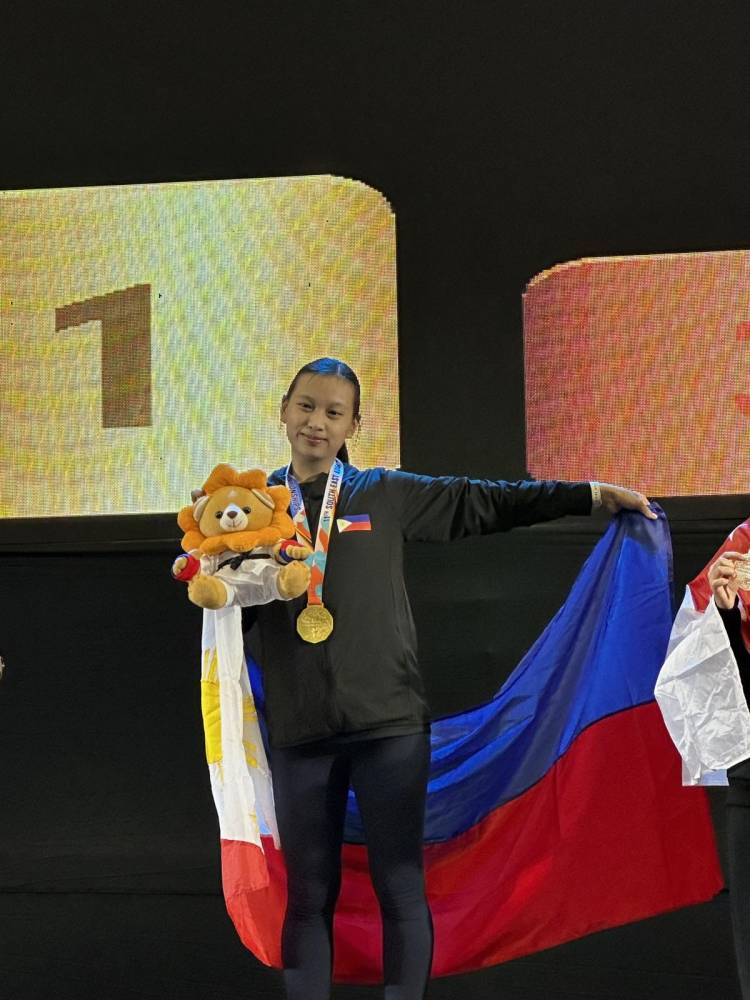
PE classes
Added Joan, “The idea that we just wake up early, train, go to school, come home late, do homework until midnight, repeat … It’s only half true. What no one talks about is recovery.”
She stressed that recovery isn’t a reward; it’s part of the grind. Sleep and food fuel the wins just as much as training does.
“Also, people think student-athletes get excused from stuff. I’m on the national team. Still, I had to attend PE classes in Poveda like everyone else.”
She credits her academic environment for being part of her success. “I’m lucky. AIM is super supportive of my schedule. My classmates have been the kind who’ll send me notes or help me catch up. That kind of community? It makes a huge difference.”
Joan doesn’t pretend to be superhuman, but she knows where the real limits are. “People think the body gives up first. It doesn’t. Your mind does. As long as I’m still upright and questioning myself, I know I’ve got more reps in me. Doubt means you’ve still got gas in the tank. Because when your body’s really done, you’ll hit the floor. You’ll throw up. That’s your edge. If you’re not there yet, you can still push.”
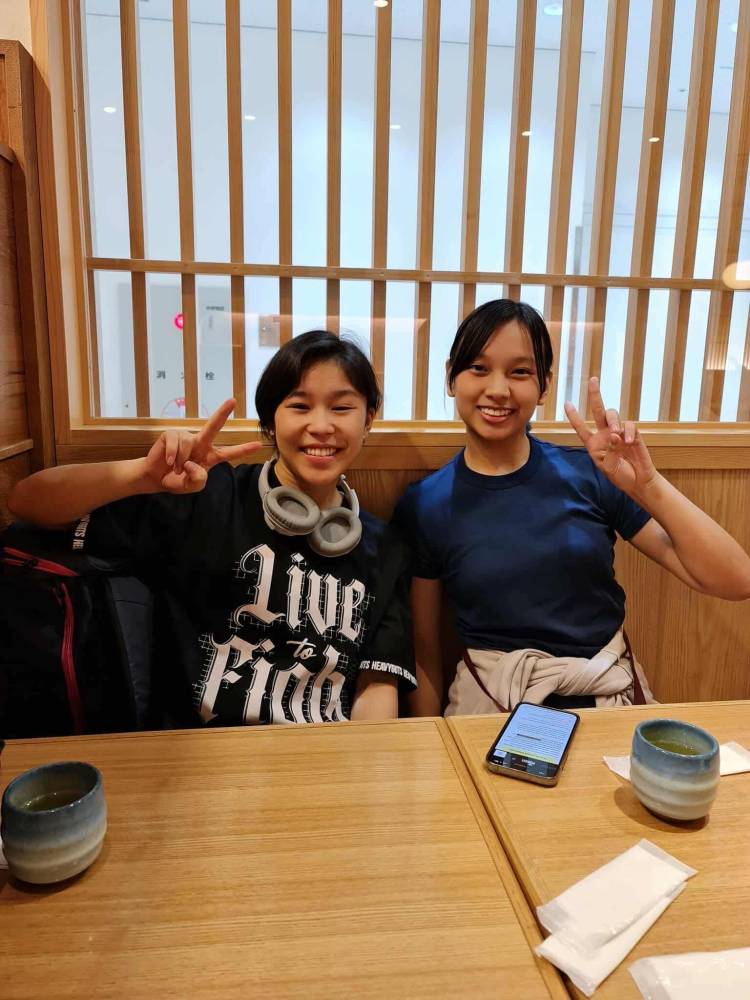
And what fuels her in those moments? “I remind myself of the goal. I want to be on that podium, hear the national anthem, and bring home gold. That’s what keeps me going.”
Despite the surprise people express when they find out she’s managing all of this, Joan shrugs it off. “There aren’t really weird assumptions—just people surprised I can manage my time. The double degree shocks them.”
As for what defines success, for Joan, a gold medal isn’t just hardware; it’s proof of all the little right decisions she made. “But to get there, you need to win the small things: sleep early, skip fast food, get your reps in. The medal is just the end product.”
Ten years from now, Joan hopes her younger self has no regrets. “I want to be able to look back and say, that was fun. I hope I made Filipinos proud. Every time I compete with the flag on my chest, I feel that weight—and it’s an honor.”
Would she change anything? “Nothing. Karate is a journey. It’s physical, but it’s also art. You start with a bow. Then you learn to punch, to block, to kick. Eventually, you go deeper—you study the history, the lineage. It’s a beautiful process of discovery.”
And if you’re thinking of following in her footsteps? “There’s no such thing as ‘too young’ to start. Anyone can do karate. You just have to begin.”













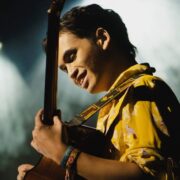
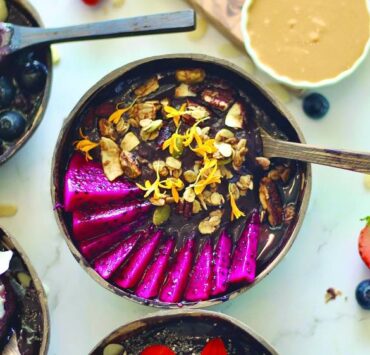



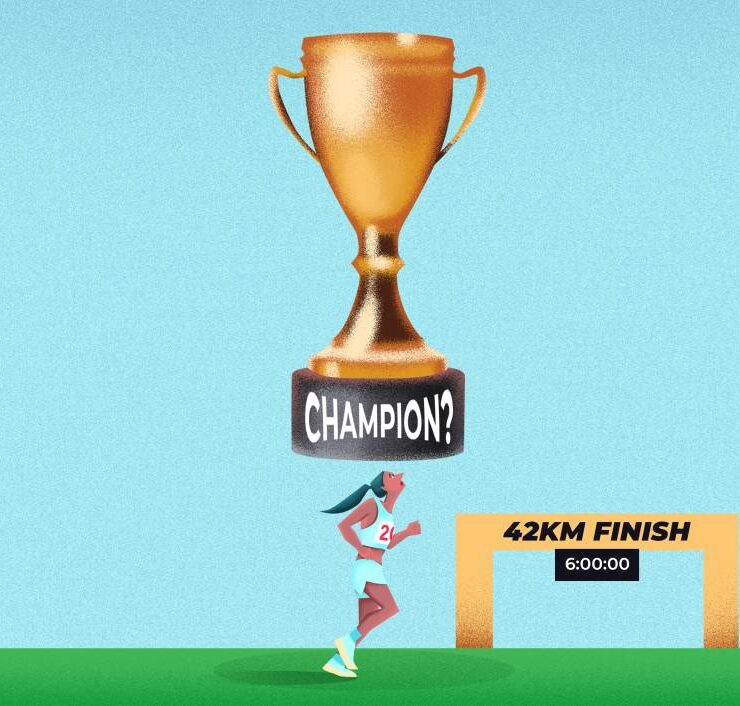


Bridging the education-employment divide